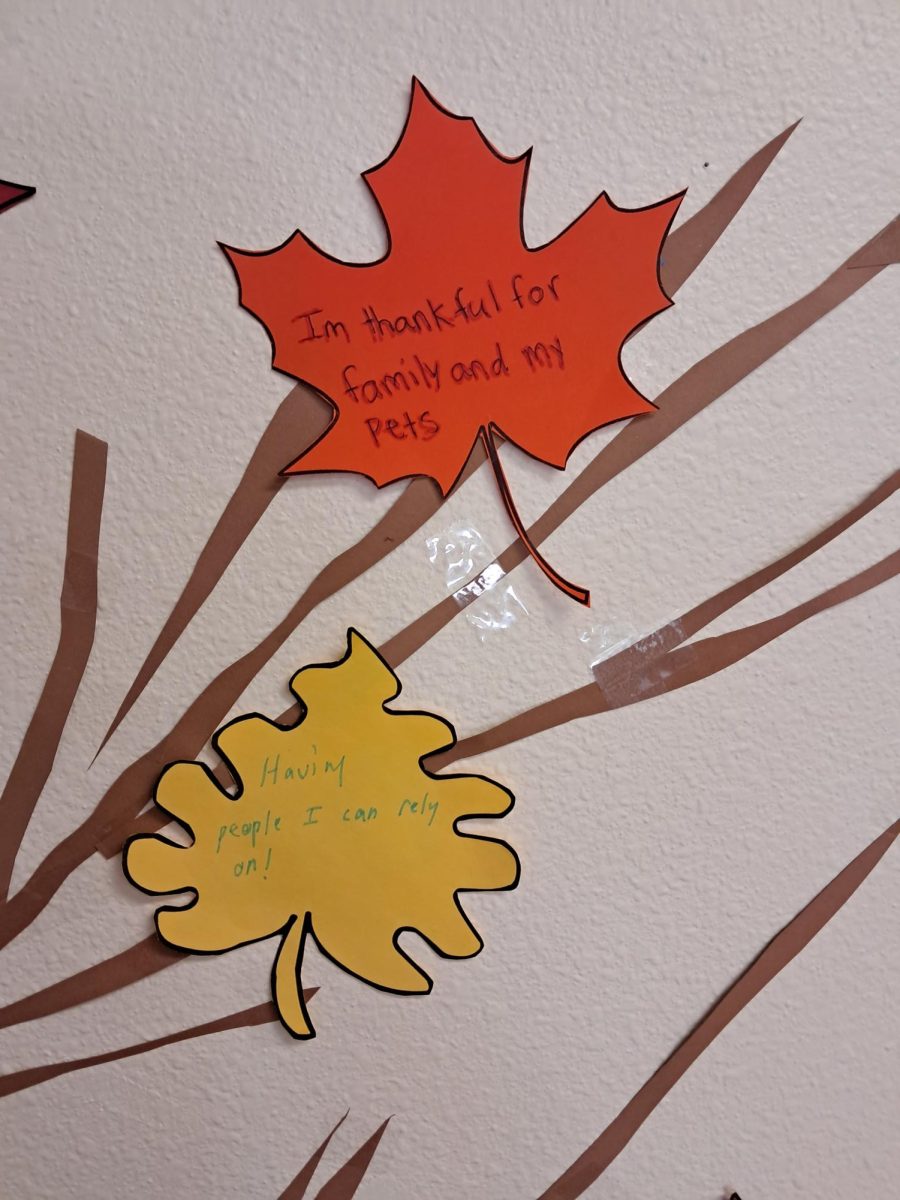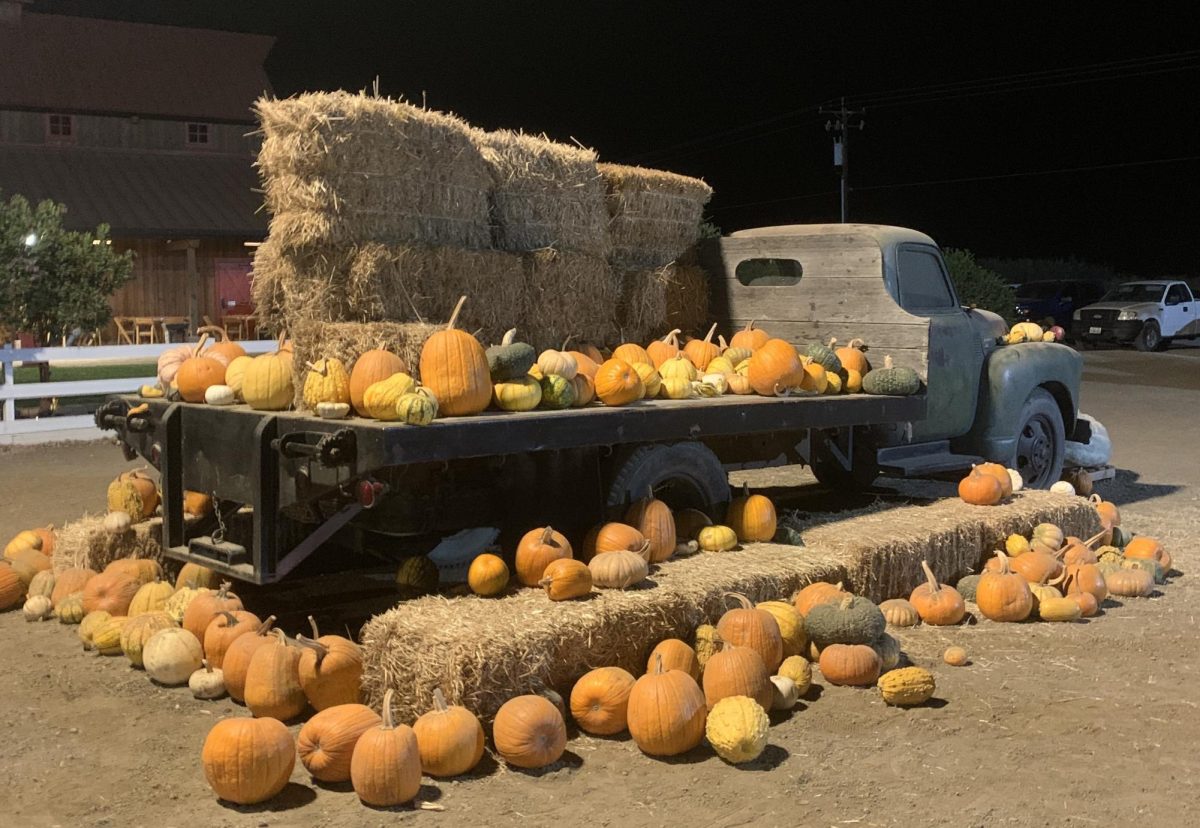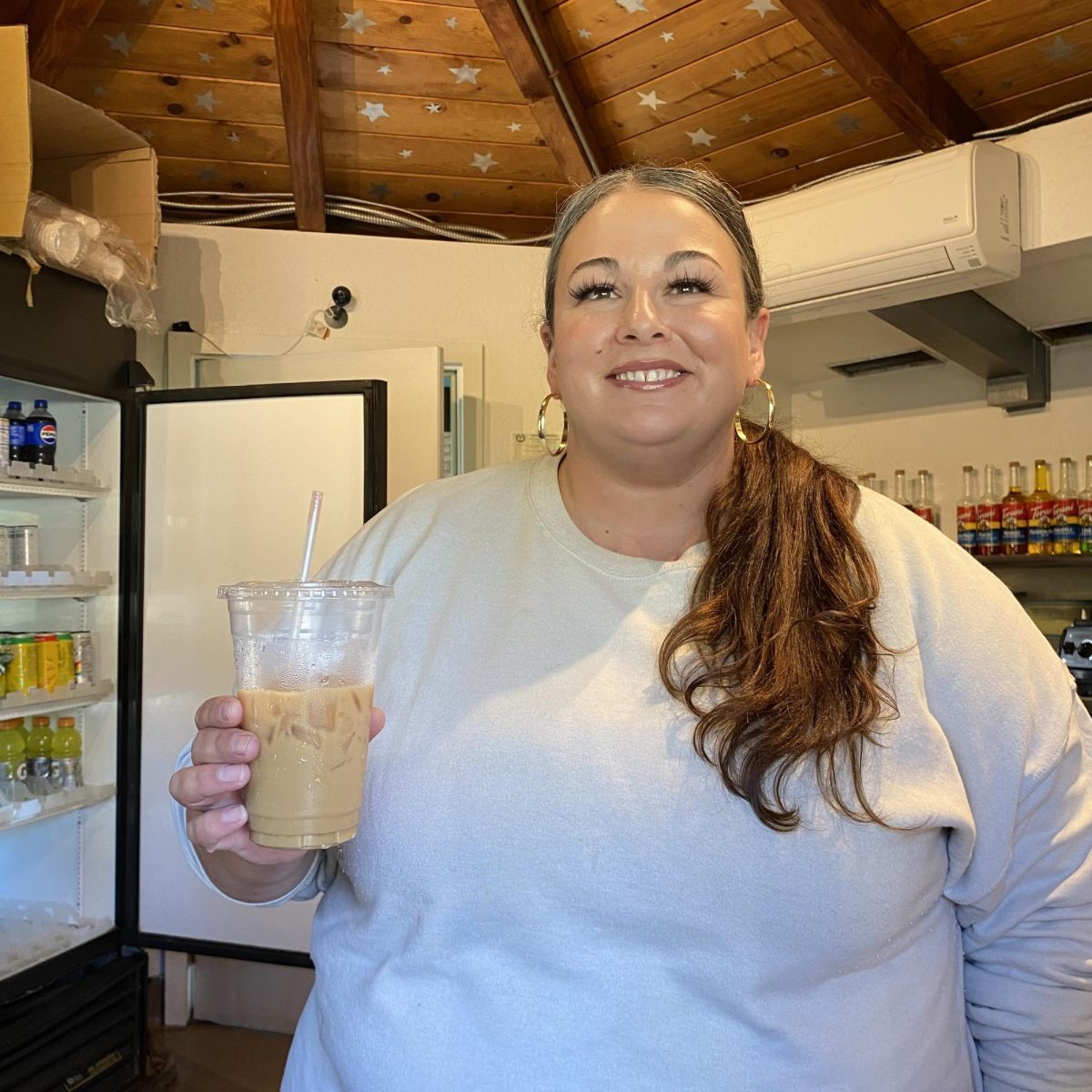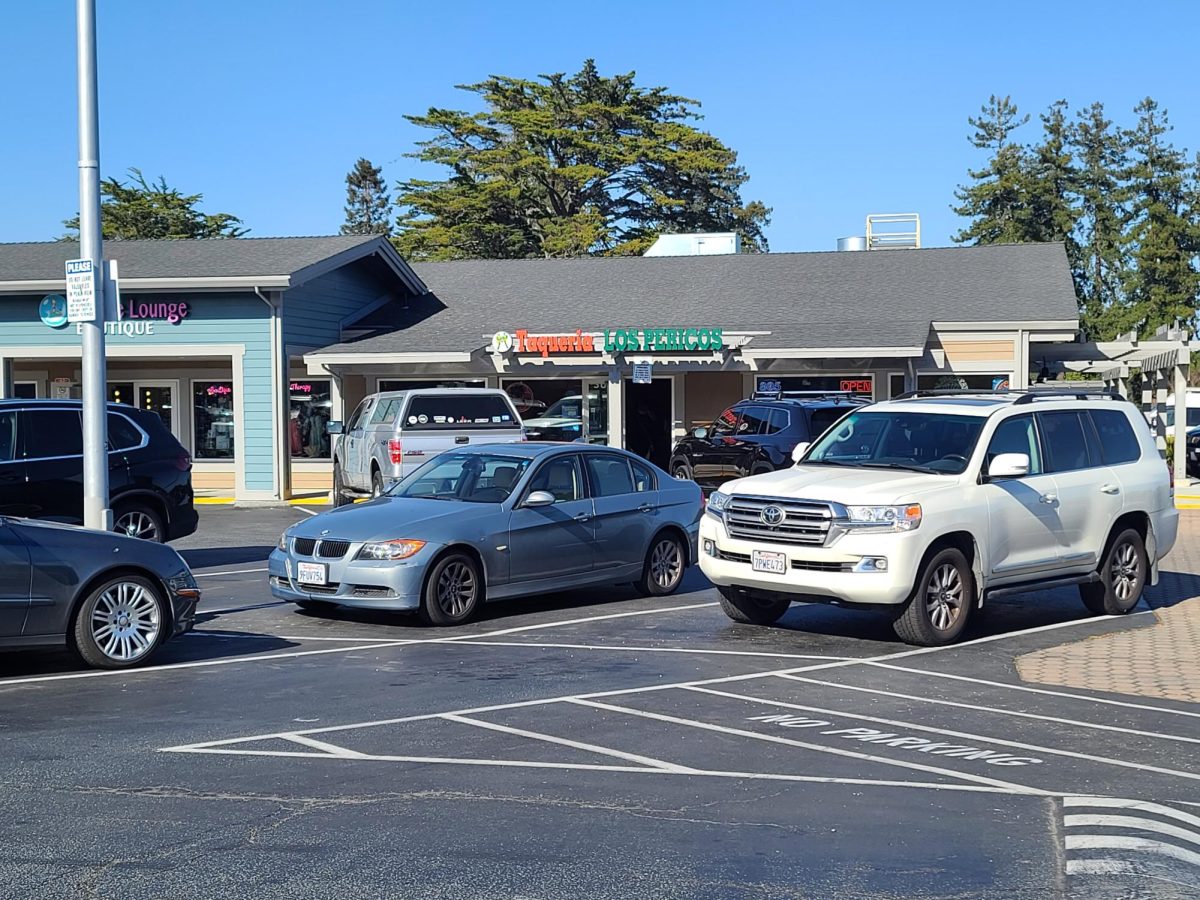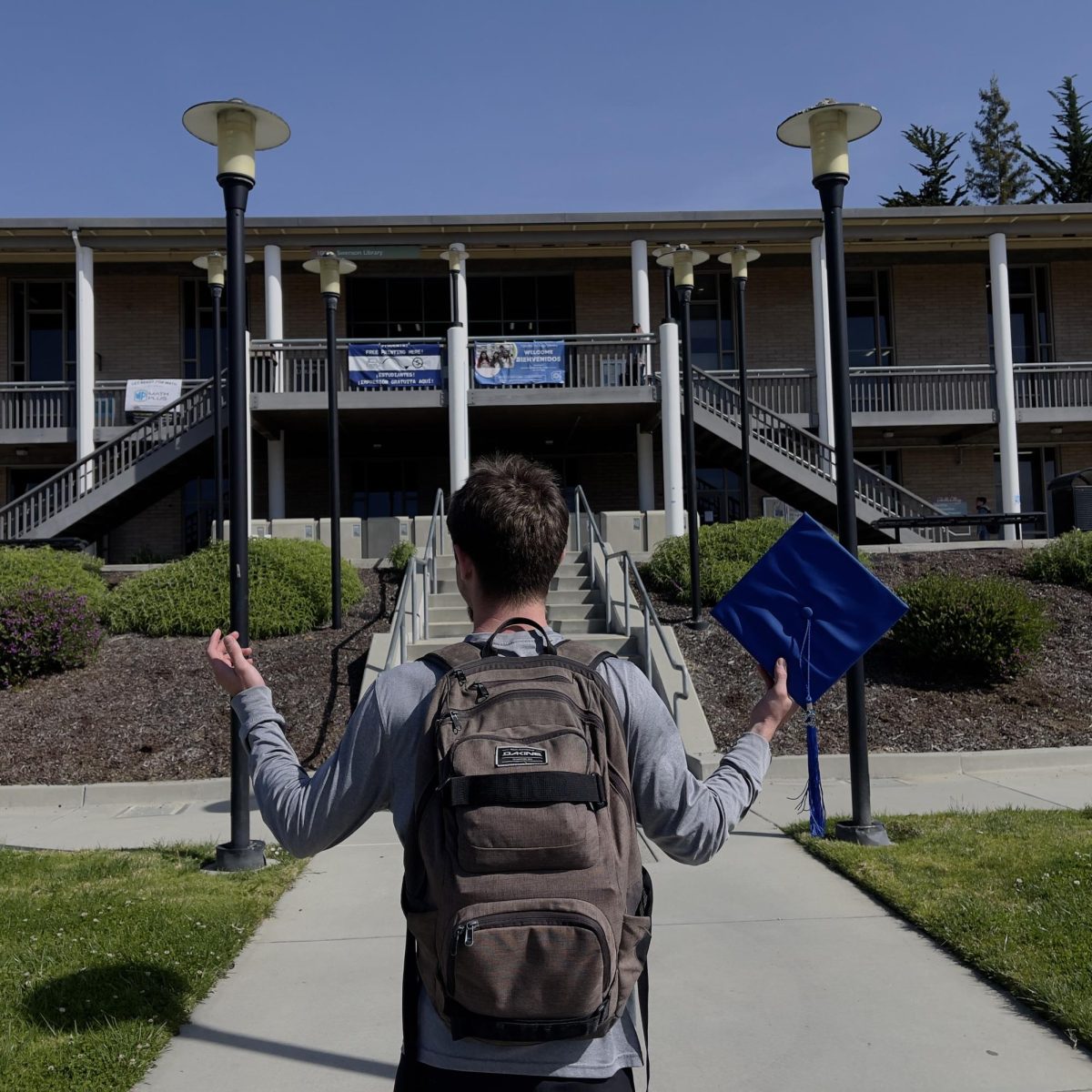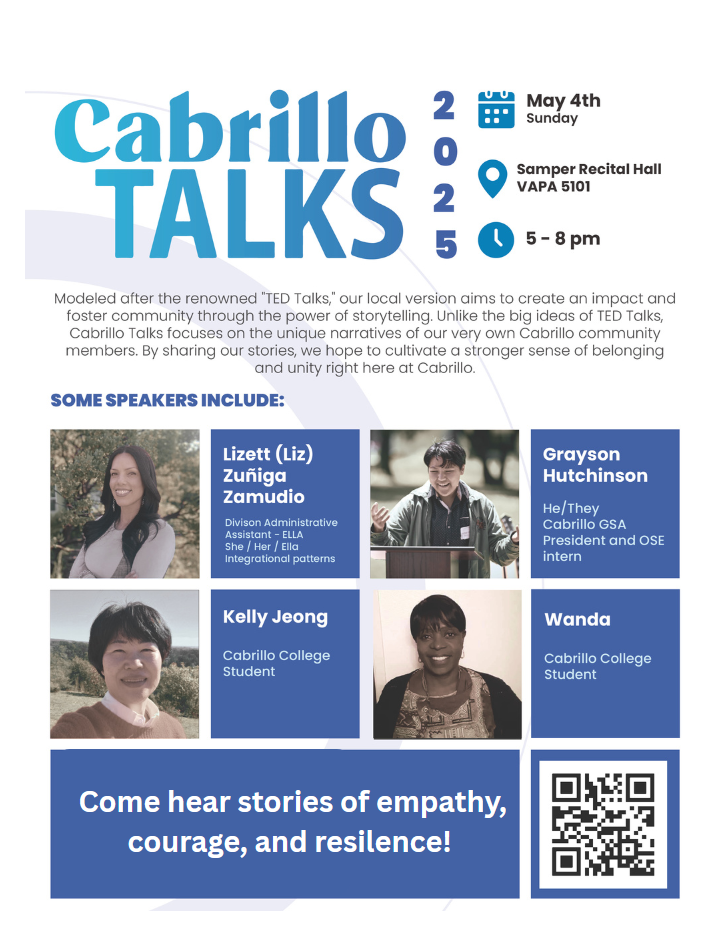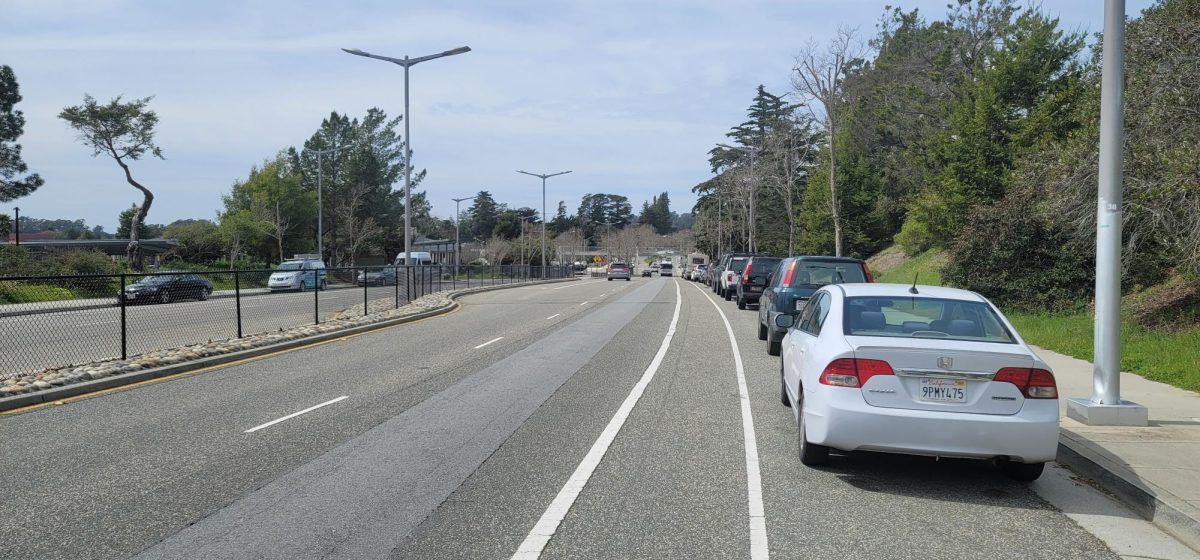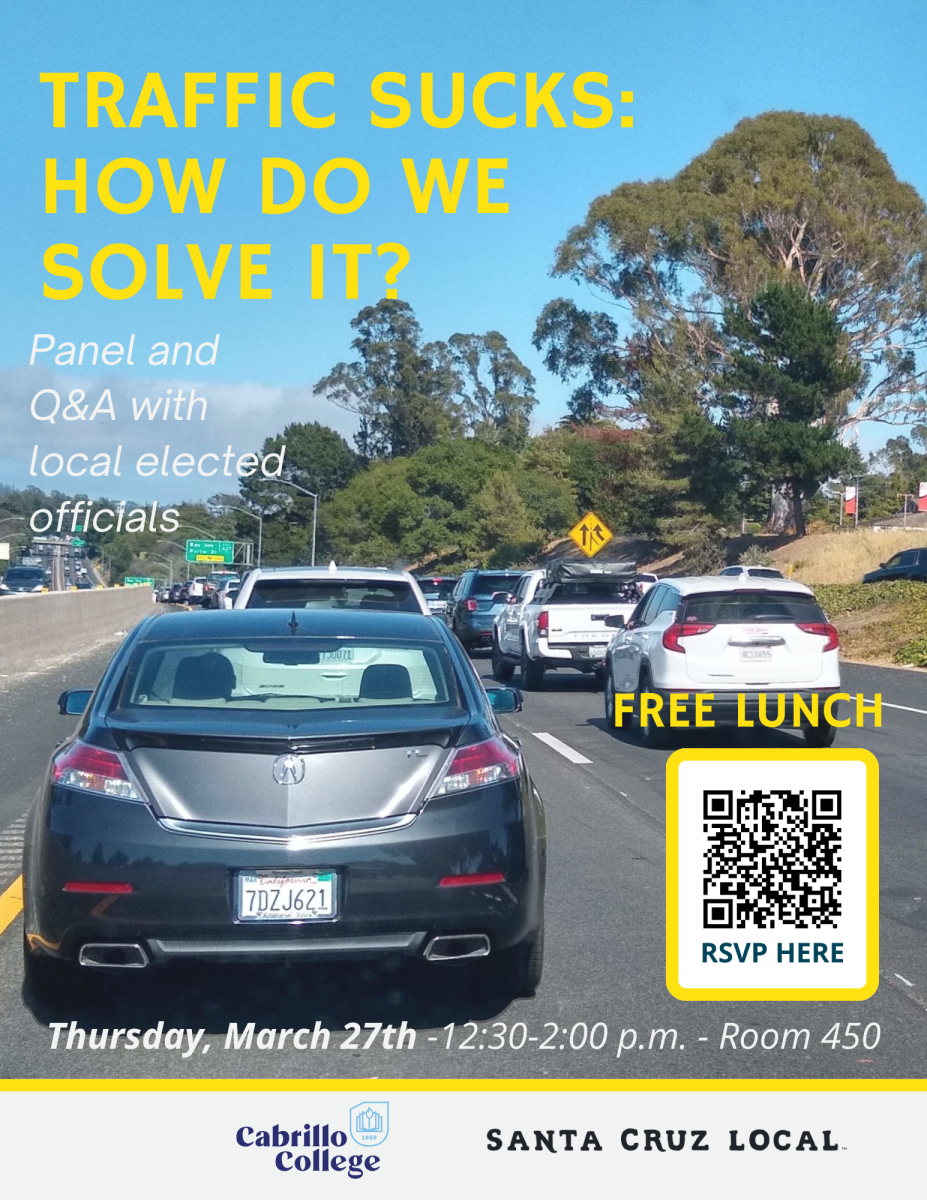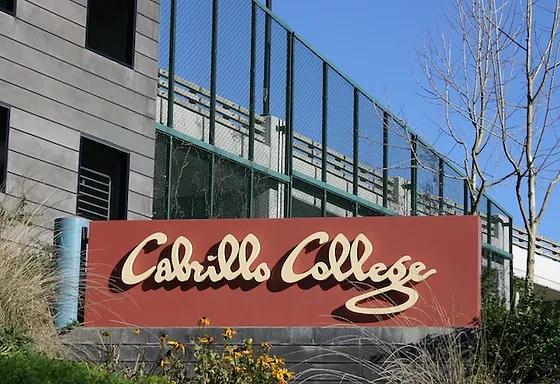Desolation is not the word most would use to describe a coastal campus. The Aptos campus at Cabrillo College, nestled between clusters of beach communities, normally thrummed with the movement of students under bountiful trees and sunshine. But on Thursday, Nov. 7, walking from one depopulated classroom to another, it had taken on the form of a ghost town.
Inside room 501, the Learning Communities Center was beginning its Thankful Tree event. This event, planned as far back as the summer, is one of many put on at the LCC to encourage positivity and interaction among students.
As I entered the room and quietly excused my way to a table, I found myself seated with five other people as we filled out paper leaves with things we were thankful for.
“I’m happy that I have a dog,” said one leaf posted on the wall.
“The feeling after a walk!” said another.
At that time, just after noon, there were only a handful of leaves affixed to the laminated tree that spanned the height of the wall. I sat directly below the boughs of the unpopulated appreciation tree, wondering if its bare branches were an ill omen for such uncertain times. Around the table, people spoke in soft, polite tones. Eventually, I found the courage to introduce myself.
The atmosphere blossomed as I was passed snacks, drinks and markers, and we began to go around the table saying things we were thankful for. We kept it simple: we were thankful to be safe, fed and in a place like Cabrillo.
Yet, as we acclimated to each other, shaking off the ice of new meetings, something unspoken became clear: we were all preoccupied with the election results. So, now we went around the table anew: what were we thankful for in light of the events of the last few days?
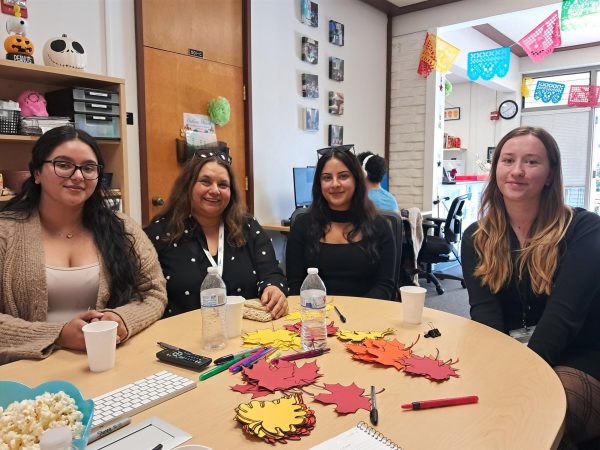
“I’m trying to be positive. You need sunlight and to do positive things,” said Debbie Partida, the HSI grants administrator at the LCC.
As an administrator dedicated to Hispanic-Serving Institutions, Partida was uniquely poised to see the potential ramifications of an administration that campaigned on promises of mass deportation.
“I’m just so sad and angry– I want to do positive things now more than ever,” echoed Madeline Partida, a business administration major at Cal State University Monterey Bay. She described the campus at CSUMB, where nearly 50% of the student body identifies as Latinx, as “muted.” Her comments echoed the feeling on the Aptos campus that day, where my classes had dwindled down to a third of their normal size.
Others were more direct. “I’m grateful I’m in California,” said Abigail Hinds, an English major and peer mentor at the Learning Communities Center.
As we returned to the Thankful Tree event, we spoke more about how we can focus on our communities as we move forward into an uncertain political climate.
“We want to do more events in Watsonville,” said Evenie Ramirez, also a peer mentor at the Learning Communities Center.
We mutually forgot that I was there to cover an event. As the time rolled from minutes into hours, the people at the event became more like new friends. My new friends delighted me with the kinds of local insight that take a lifetime to build, and I couldn’t resist asking questions on top of questions, even as I became dangerously late for my next class.
When the time came for me to leave, I couldn’t quite recall what I found so lonely about these empty hallways. In the hours I spent at the LCC, the boughs of the Thankful Tree began to slowly but surely, fill with our thanks and affirmations. After the event has ended – the Tree will spend some time on the Watsonville campus to gather the thanks of the students there – it will return to Aptos. In that small time, perhaps the Tree will demonstrate just how quickly and fully a community can heal.

